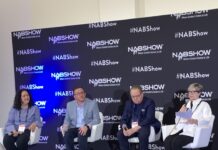
About 10 years ago, Dave Robinett, a Market Researcher at Sprint world headquarters in Overland Park, Kansas, started thinking about his future career path. Layoffs were looming so he was anxious to find a different way to keep a roof over his head and food on the table for his family.
A common way to collect market data at the time, according to Robinett, was to send text messages to customers and invite them to call an 800 number that would hook them up to an IVR (Interactive Voice Response) survey system. “Fairly early in the mobile time frame we could send the text message, but there wasn’t a hyperlink or a click-to-dial feature,” says Robinett. “People would have to remember or write down the number or hyperlink. Every hoop you make a respondent jump through, that’s the more respondents you lose. Before you know it, you are affecting whether or not you are getting a representative sample or even a decent participation rate.”
Robinett says that was his first insight that people have a hard time remembering 10-digit phone numbers; so why not give them less digits to remember? Abbreviated Dialing Codes (ADC), something like *123, seemed to be the answer. Users could now respond to the text messages with the easily remembered code and be channeled right into the IVR.
Like most commuters, Robinett spent a lot of time in his car listening to the radio. He heard numerous commercials asking the listener to dial an 800 number or go to a specific website. A memory challenge for many if you couldn’t write it down and then find the time later to follow through.
A serendipitous light went off in his head.
Leaving Sprint, Robinett started his search for a four-digit ADC that would work on all major wireless carriers. “It took me about five years to get the top four carriers (ATT, Verizon, T-Mobile, Sprint) which account for about 90 percent of the mobile phone users in the U.S. For advertising purposes I knew I had to get at least the big four. Since then I have been able to get U.S. Cellular, with about six million subscribers, plus about 15 other small, regional carriers. We also have the top eight Canadian carriers. I describe our footprint as about 99 percent of all mobile users in the U.S. and Canada.”
#250 America’s Mobile Speed Dial was born, and according to Robinett, it is the only ADC that works on all significant mobile carriers in the U.S. and Canada. “It had a ring to it and zero does not have a letter associated with it on the dial pad. Also, I figured a number was better than an acronym because you have to hunt and peck to spell an acronym. Something that you shouldn’t be doing while driving.”
Originally, Robinett wanted to use this as a market research tool, but nobody was buying it. “Then it occurred to me that if I help businesses make more money through sales, then they will be willing to pay me. That’s when the advertising application occurred to me. I could use the ADC with speech recognition. Something like the business name or a short phrase like ‘Cut My Taxes,’ ‘Better Smile,’ or ‘Lose Weight Today.’ So when our system recognizes that keyword phrase we can route the call. We are enabling more people to respond due to the simplicity and we are retaining the attribution back to the radio station.”
“My first significant client was Liberty University in Virginia which is using the system to recruit students for their online degree programs. We did a test radio campaign in Atlanta which started generating about 50 calls a week. Once we got Liberty University with our successful Atlanta campaign, we were on the Salem Network in 39 markets with our Liberty University campaign. That brought us into the Christian broadcast space with more schools and non-profits using our product.”
Things really took off for Robinett when he started working with a media-buying company in Florida. “About three years ago we were introduced to Janice Banken of Accountability Marketing in Fort Lauderdale. She had worked with iHeart for many years and she introduced us to Linda Byrd of iHeart Orlando. We got a shot with a few iHeart clients in Orlando, including a doctor who did LASIK procedures. He went from getting maybe eight calls a week to about a dozen calls a week. That limited success in Orlando got us a chance to meet with iHeart Los Angeles where they embraced our product. That led to a nationwide agreement with iHeart Media to resell #250 keywords to their advertisers.”
Another boost for Robinett was when #250 spots started appearing on SiriusXM and Premier Network shows like Rush, Hannity, and Levin. “We had a Direct Marketting company that is really into metrics and ran a test with our product and the 800 numbers that they were using on Premiere Network shows. It was a formal test using #250 plus keyword versus the regular 800 numbers. The same creative and same media weight was used over a six-week period. Results showed that our spots got 150% more calls than the 800 number.”
Robinett says the categories that benefit the most from his product are direct response advertisers. “You have direct response categories with a large pool of people who could use a service. One example is LASIK eye surgery, another is weight loss. The candidate pool among listeners is really high and you’re trying to convince them that now is the time to act, and here is a great offer for you to act on today. Another large category are “things that I really didn’t know I needed right now.” Examples are Nutriceuticals, we have a prostate nutriceutical client; or another is snoring, sleep apnea remedies.”
Robinett has high hopes for the future. “It pays my mortgage. It is a million dollar business now and we still believe it could grow to 20 to 50 million in annual revenue. We are continuing to work on our matching technology where, for example, we can use the keyword ‘pizza’ in a market and then license the same keyword in a different market. The ultimate goal is that we could be licensing 200 to 500 keywords in each of the 210 DMAs (Designated Market Areas). At some point I believe a national financial company will pay us a million dollars to have the exclusive rights to the keyword ‘mortgage’ in all markets because mortgages are a big-ticket profit-making item. Making a million-dollar investment for a high rate of return is a good deal.”
“The more adoption we get, the value of what we call category keywords grow in value. We have high hopes for the future and that’s just on the direct response advertising. There is a future beyond direct response radio advertising. It could be keyword access to anything under the sun and you don’t need a smart phone, you can use a flip phone and you don’t need mobile data. As long as you can make a phone call you can still access these voice-based, intelligence agents.”
Thanks to Dave Robinett of #250 America’s Mobile Speed Dial
Thanks to Linda Byrd, President, North Florida Region, iHeartMedia.
Thanks to Janice Banken of Accountability Marketing





